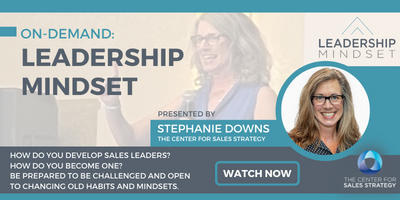
In species terms, a hippo is the world’s third largest mammal, but in business terms, a hippo refers to the Highest Paid Person’s Opinion.
Have you ever been in a meeting where people ask for opinions, but no one speaks up until the HiPPO in the room speaks? Or maybe you’ve been the HiPPO in the room, and everyone’s simply always agreed with everything you’ve said. When the HiPPO dominates the conversation, other team members' ideas and perspectives can be overshadowed.
Why is the HiPPO so Dangerous?
To understand this better, let’s align the business HiPPO with its mammal counterpart. A hippopotamus is a very heavy creature! It could be easy for someone, or someone’s opinion, to get crushed underneath all of that weight. A hippo also has a gigantic mouth, meaning it could be prone to talking a lot. Coupled with its gigantic mouth are ears so small, they almost look out of place. A hippo may hear someone talking, but not really listen to what’s being said.
The HiPPO's opinion can have a negative impact on team dynamics, innovation, and decision making. When only one person's opinion carries weight, it discourages others from contributing their ideas. This causes a lack of diverse perspectives and creativity - potentially leading to poor decisions.
Can You Have Success Without the HiPPO’s Opinion?
Yes, you absolutely can. Lego is one of the best examples. Lego’s net profit in 2022 was over two billion dollars. Do they rely on the HiPPO to make their decisions? No, as a matter of fact, they rely on unlimited groups of people to decide which products are likely to be successful. If you’re a Lego fan (or you have a little one at home) you’re probably already aware.
Any Lego fan can submit a product design. These designs are then voted on by an open community of fellow Lego fans. When a product design gets over 10,000 votes, barring any legal issues, it moves into production. This business model means that by the time the product reaches shelves, it’s already in high demand. And those responsible for developing the product aren’t HiPPOs, in fact, they aren’t even on Lego’s payroll at all. It’s genius.
How Can You Overcome the HiPPO?
Now that you know the value of others’ opinions, it’s time to take action. What you can’t see about the mammal hippo, is that hippos have the ability to hold their breath for a very long time. In the workplace, this can provide everyone else in the room an opportunity to share their thoughts and views. To ensure others will speak up when the HiPPO doesn’t, here are a few things you can do:
Establish psychological safety: Without psychological safety, the HiPPO can (and will) take over. Psychological safety is a term coined by Harvard Professor Amy Edmondson. It’s a shared belief held by members of a team that they won’t be embarrassed, rejected, punished, or humiliated for speaking up. Team members can openly voice ideas, questions, concerns, or mistakes.
If you happen to be the HiPPO, establishing psychological safety involves understanding that other people’s opinions are just as important, if not more important, than yours. Each and every one of your team members has valuable insight that can lead to innovation and growth.
Spark diversity of thought: Adam Grant once said, “Diversity of thought opens minds. Intensity of conviction closes them. Knowing your knowledge is incomplete is a prerequisite for learning.” Need I say more? But, encouraging others to speak up can sometimes take a little prompting! Asking open-ended questions is one of the best ways to stir up the conversation. Here are some questions to consider:
- What are we missing?
- What other options could we consider?
- How would another company approach this?
- Who has a different perspective to share?
Don’t fear disagreements: Disagreement does not have to equal danger. Instead, disagreement can challenge the status quo by asking the group to take their thought process farther. The term for it is functional conflict - productive disagreements where the end goal is improvement within an organization. It’s important to commend, not condemn, the opposing point of view.
Allow for silence: Although silence has the bad reputation of being “awkward,” silence is sometimes necessary! It gives people the opportunity to think about the question you’ve asked them. Not only that, but it gives people the window to speak. It can take some people longer to speak up than others. Silence ensures everyone can be heard.
Self-reflect: Take time to reflect on your own feelings and experiences, and how they may relate to others. Also consider how your personal biases or prejudices may affect your ability to listen to the opinions of others. Set your biases aside and be open to what others are saying.
Conclusion
Overcoming the HiPPO is essential for fostering creativity, maximizing team potential, and driving innovation. By surpassing the HiPPO, companies can unleash the true creativity of their teams. It's time to empower every team member and let them know – everyone’s voices are valued.




